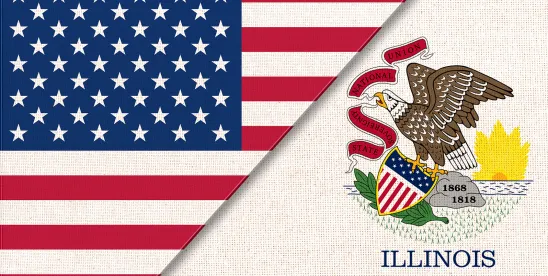Addressing when Illinois law’s “absolute litigation privilege” bars certain counterclaims, the US Court of Appeals for the Federal Circuit affirmed a district court’s summary judgment finding that the plaintiff lacked a valid trade dress and reversed the district court’s decision that declined to apply the absolute litigation privilege as a complete defense to all of the alleged infringer’s counterclaims. Toyo Tire Corp v. Atturo Tire Corp., Case No. 22-1817 (Fed. Cir. Oct. 4, 2024) (Moore, Clevenger, Chen, JJ.) (nonprecedential).
Toyo and Atturo are competitors in the tire design business. After perceiving widespread copying of its tire designs, Toyo filed a district court action asserting design patent infringement and trade dress infringement against Atturo. Atturo asserted counterclaims, including false designation of origin under the Lanham Act and several state law counterclaims. The district court eventually dismissed with prejudice Toyo’s design patent infringement claims and proceeded with just the trade dress infringement claim.
A primary issue in the case was the description of the asserted trade dress. In its complaint, Toyo identified its trade dress merely as “the overall appearance” of its line of tires. Over the course of discovery, disputes arose concerning Toyo’s failure to distinctly describe its asserted trade dress. Toyo answered an interrogatory that requested this information with a non-limiting definition. The district court compelled Toyo to provide a more specific answer, which Toyo did by providing highlighted images.
Toyo’s fact witness was subsequently deposed under Fed. R. Civ. P. 30(b)(6) and gave answers that were inconsistent with Toyo’s interrogatory response. This led the district court to compel more testimony on what exactly the asserted trade dress contained, and which tire features met the definition of the trade dress, and which did not. On the advice of counsel, the corporate witness declined to answer more than 100 different questions. Toyo’s inability to describe its trade dress continued into expert discovery. When it served its expert reports, Toyo introduced yet another aspect of its trade dress – that the trade dress only included two-dimensional aspects. Toyo introduced this new argument to support the requirement that to qualify as trade dress the designated feature must be nonfunctional.
Atturo moved for sanctions. In granting the sanctions, the district court barred Toyo from asserting only the two-dimensional aspects of the trade dress, precluding Toyo from continually shifting its position because doing so “would effectively lead to trial by ambush.” Having struck the only argument that could save the trade dress from invalidity, the district court granted summary judgment of invalidity on both functionality and lack of secondary meaning.
Trial then proceeded only on Atturo’s counterclaims. The jury returned a verdict in favor of Atturo on six of the counterclaims, awarding $10 million in compensatory damages and $100 million in punitive damages. The district court set aside the jury verdict as it related to counterclaims of defamation and liability under the Illinois Deceptive Trade Practices Act. Both parties appealed.
The Federal Circuit affirmed the district court’s issuance of discovery sanctions, and the grant of summary judgment of invalidity based on functionality. Toyo argued that it was clear error for the district court to find that its interrogatory response did not disclose the two-dimensional trade dress. The Court disagreed, finding that Toyo’s discovery responses conveyed that its trade dress included three-dimensional components. The Court also rejected Toyo’s argument that the district court erred in finding prejudice from Toyo’s belated disclosure of the two-dimensional trade dress. The Court explained that “to prevail on a trade dress claim, the plaintiff must establish that its trade dress is nonfunctional, that it has acquired secondary meaning, and that a likelihood of confusion exists . . . [and] each of these showings requires knowledge of what the trade dress comprises.” Because Toyo did not timely disclose the scope of the trade dress, it was not clear error to find that it prejudiced the defendant.
As to the state law defamation counterclaims, the Federal Circuit reversed in part and affirmed in part by concluding that Illinois law’s absolute litigation privilege provided a complete defense to the claims. The absolute litigation privilege “immunizes certain statements and conduct by attorneys in the course of litigation, as well as by the private parties to litigation.” All that is required for this privilege to attach “is that the communication or conduct pertain to proposed or pending litigation.” Because the Illinois Supreme Court has not ever addressed whether the absolute litigation privilege would bar such defamation claims, the Federal Circuit was required to predict how the Illinois Supreme Court would rule. Based on its reading of Illinois appellate court decisions, the Federal Circuit concluded that the Illinois Supreme Court would find these causes of action to be barred by the litigation privilege. Accordingly, all counterclaims were dismissed.




 />i
/>i

